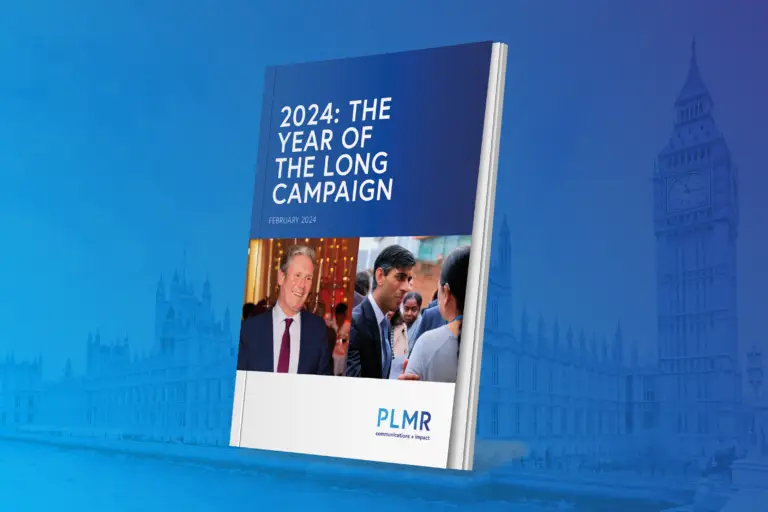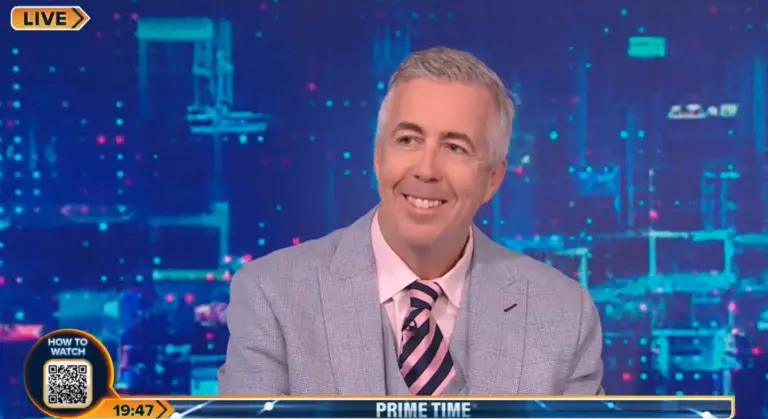To kick off 2024, PLMR commissioned Savanta to poll the public and gain an insight into the views and perspectives of voters as we head into the long campaign.
Overall, the findings paint a picture of the election being Labour’s to lose but hints that there is still plenty to play for.
As the results set out below highlight, whilst Labour hold a lead, significant swathes of voters are yet to decide how they will vote, whilst many individuals are open to changing their mind regarding their voting intention as policy platforms are developed.
With an election expected in autumn, our findings highlight that voter support is up for grabs across large parts of the electorate.
- A significant portion of the electorate is undecided who they will vote for at the next General Election. Overall, 38% of individuals polled stated they are yet to make up their minds. Female voters are slightly more undecided at the moment (42%) compared to men (34%).
- Attracting the votes of younger demographics could be critical. Younger voters are significantly more undecided on how they will cast their vote. 48% of 18-24 year olds, 53% of 25-34 year olds, and 50% of 35-44 year olds all stated that they were yet to make up their minds on their voting intention. Comparative figures for the 55-64 and 65+ demographics were 29% and 25%, respectively.
- In addition to many voters being undecided, individuals are also open to changing their mind as the election campaign gets underway. 38% of voters suggest their vote could be swayed between now and election day. Again, this is marginally higher for female voters (40%) than male voters (37%) as well as across younger voting demographics: 25-34 year olds (48%) and 25-44 year olds (42%).
- Reflecting wider party polling trends, voter intention highlights challenges on the horizon for the Conservatives. 41% of Conservative voters stated they would be open to changing their mind on how they voted, significantly more so than Labour voters (33%). Attracting the votes of Liberal Democrat voters could provide key to the outcome of the next election, with 44% of Lib Dem voters being open to changing their vote. Conservative voters are also more undecided on who they will vote for (37%) than Labour voters (30%).
- Regional battlegrounds across the ‘Red Wall’ contain significant portions of undecided voters. As the Conservatives fight to retain the gains made at the 2019 election, 44% of voters in the North East, 42% in the West Midlands, and 40% in the East Midlands are yet to decide which way they will cast their vote. London (47%) Northern Ireland (46%) currently host the highest proportions of undecided voters.
The broader context facing the Conservatives – trailing Labour by between 15% and 25% in the polls – clearly demonstrates the huge challenge the party faces in retaining power at the next election. Flanked by Reform UK in many ‘Leave’ voting Red Wall constituencies and facing growing opposition from both Labour and the Liberal Democrats in more traditional southern ‘Blue Wall’ seats, it is far from clear whether Sunak and the Conservative leadership can shift the dial on the current polling position they find themselves in.
However, as our findings demonstrate, the 2024 campaign – which is only in its very early stages – is far from over. Whichever party develops a ‘retail offer’ of policies to undecided voters – including tapping into the more open-minded appetite among younger voters, could well find itself rewarded come polling day.





